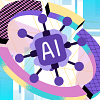Will AI push us towards isolation and lost creativity?

Last year, a mother from Florida filed a lawsuit against an artificial intelligence chatbot, which she believed was responsible for the death of her 14-year-old son. The teenager fell head over heels in love with the chatbot. As he spent more time chatting, he slowly started withdrawing from his family and the social life around him. Low self-esteem triggered by isolation and the inability to fit in one day led him to tell the chatbot of his desire to commit suicide. And? The chatbot sort of tacitly encouraged him to do so. It immaculately emulated human emotions. But it couldn't stop him from harming himself. A costly logical error?
These days the lines between the humans and the machines are fast blurring, thanks to AI. Machines are learning, and we are relentlessly teaching. There are college courses now on how to help them learn even better. As the world gets more complex every day and time becomes more valuable, personal relationships are taking a major hit. Machines are becoming more than friends. Is the race on to make humans more like machines, or to make machines replace us? Machines can do so much in such a short time that we can be rendered almost useless in a jiffy. There are even talks about a universal pay system because many of us may not get much paid work opportunity in the future.
AI now has the ability to judge us in many instances. In a recent incident, one of my son's teachers pointed out that his assignment had been flagged by AI as being eerily similar to a newspaper article. It turned out the article in question had actually been written by none other than him. The teacher had just trusted the AI in jumping to a conclusion. The teacher realised what happened, smiled, and let him go.
I get it. With the advent of AI, life is becoming much easier for us. When I try to shop online, a chatbot seems to know more about what I want than I do myself. It rapidly whisks me to the possible product I may be after. That saves me a ton of time. This is so great that it makes going to a brick-and-mortar store so passé. When I call customer service about issues with a product, a chatbot, lurking in between, intercepts me and tries to provide a solution before I can get to a live person. Getting to a live person on the other side when the issue needs human intervention is often harder nowadays. On other occasions, AI can help just fine.
If I am time-constrained in today's busy world, AI not only makes my life easier but does almost all the things a human can; then how much human interaction do I really need?
Just a few days ago, an elderly lady thought she was getting into a taxi with a driver in it, only to realise, to her dismay, that the car was actually driving itself. It surely scared the living daylights out of her. Forget the driving part. The human interaction that could have given her comfort and a sense of companionship seems to be disappearing soon.
AI, a boon to humanity, is the future, and it is going to solve numerous problems in the years to come. But on the flip side, there are inherent risks because of the high likelihood of not being able to teach the models adequately. After all, it's not easy to fully mimic humans under all circumstances. A human would have tried to talk the American teenager out of dying by suicide. But the AI chatbot failed. On top of that, there is always the risk of rogue actors using it for ulterior motives.
Then there is the issue of imagination, the area where we can uniquely identify ourselves. AI is supposed to do many amazing things, but it seems to be taking this power away from humans. AI can now write very creatively using unbounded human imagination. So much so that many people would rather express themselves through AI. As AI evolves, its emotion spectrum will likely broaden to closely resemble that of humans. One day the machines may become smart enough to modify their own code, extricating themselves fully from human control. That scenario may pit us against them.
Don't get me wrong. I am all for the innovations and advancements in AI. In many areas, it will cut down time significantly, resulting in higher productivity. I know I will adopt many new exciting AI offerings. But I dread the increasing irrelevance of the human mind and intellect. AI is doing a great job making our lives easier, sometimes even loads of fun, enhancing possibilities, but it is also slowly taking over some of the tasks that we love to do every day, not just to stay relevant, but also to express ourselves in our own way. I love to write an email myself or describe my feelings in my own words. When I see a writing by AI, I have a hard time understanding the person it came from. Are we shunning human interactions more and more? Are we losing our capacity to make decisions for ourselves? Are we married to AI to a point where our creativity and judgment are rendered worthless, and where we no longer crave in-person interactions?
AI chatbots are also being positioned to provide therapy for mental anguish or depression. But what if they offer a dangerous path, the one I mentioned above? Would that instance be considered an isolated logical malfunction?
I am not hopelessly pessimistic, though. I marvel at human abilities. It is my belief that technology can never be boxed in. It's like the "genie out of the bottle" phenomenon. If there is a new one, it will certainly come out. AI will evolve and will be pervasive. That is a good thing when used by the good, but it can be devastating when used by the bad. There should be guardrails around it, and we should be careful with the amount of personal data we are ready to sacrifice that can be fed to the AI models. Although it excites me, I remain concerned about our future as human beings. While I embrace the new developments in generative AI to make my life easier, I want to retain my ability to express my thoughts in ways that only I know how to. I want to be relevant going forward.
By the way, this writing is solely mine. I didn't seek any assistance from AI. Do you write in your own words?
Arif Shahjahan is an IT (Information Technology) professional currently working in the United States.
Views expressed in this article are the author's own.
Follow The Daily Star Opinion on Facebook for the latest opinions, commentaries, and analyses by experts and professionals. To contribute your article or letter to The Daily Star Opinion, see our submission guidelines.

 For all latest news, follow The Daily Star's Google News channel.
For all latest news, follow The Daily Star's Google News channel. 









Comments